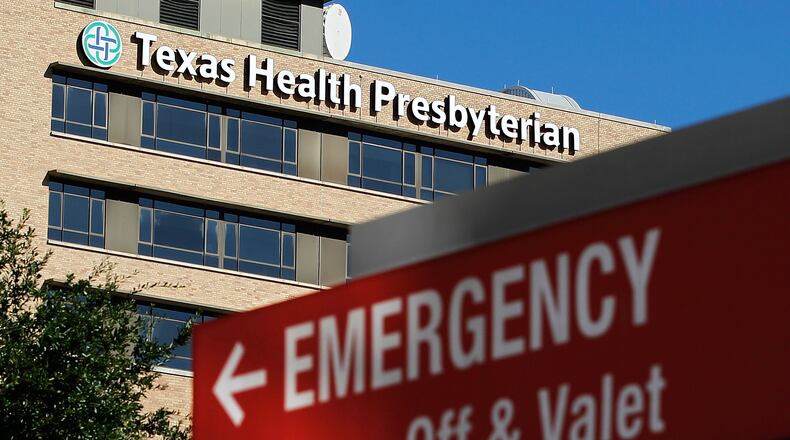Nine days after the death of Ebola patient Thomas E. Duncan in Dallas, state officials today announced that health care workers who entered Duncan's room are now under compulsory travel and monitoring restrictions.
According to a document posted on the Texas Department of State Health Services website today, no one who entered the Duncan's room may travel by commercial transportation -- airplane, ship, long-distance bus or train -- until 21 days after that person's last exposure. Local use of public transportation (taxi, bus) by these individuals should be discussed with the public health authority.
(One Dallas health care worker was isolated aboard a cruise ship Thursday in the Caribbean. The woman, a lab worker, may have processed fluids from Duncan in a hospital lab.)
In addition, according to the document, anyone involved in Duncan's direct care "must be monitored twice a day with one of the monitoring sessions being a face to face encounter. As part of that monitoring, each temperature will be checked twice a day."
A third condition is that health care workers who entered Duncan's room may not "go to any location where members of the public congregate, which includes but is not limited to restaurants, grocery stores, theaters or other places where the public may be in attendance or gather, throughout the entire 21 day time period that follows the individual's last exposure.
Roughly a hundred health care workers at Presbyterian Hospital are will be asked to sign it in acknowledgment that they have received it.
The notice also says that any health care worker may stay at Texas Health Presbyterian Hospital on a "non-admission status to facilitate monitoring."
Anyone who doesn't comply with the new rules may be "subject to a communicable disease control order," or quarantine.
Keep Reading
The Latest
Featured


